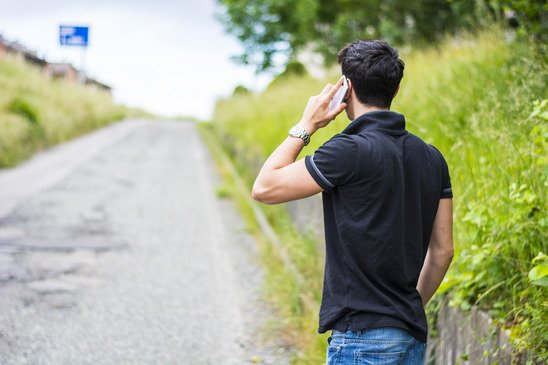Uber has become wildly popular in Las Vegas. In 2015, city legislators gave Uber and Lyft the green light to operate in Las Vegas. This year, there was a 17-percent drop in passengers on two of the RTC’s most popular routes – Deuce and the Strip & Downtown Express – which indicates that locals and tourists are turning to ride-share services for more convenient and affordable transportation.
 However, more Uber vehicles on the road means there is a higher risk of being involved in a ride-share accident. In you are injured in a crash with a ride-share vehicle – whether as a passenger, a pedestrian or another driver – you may be entitled to compensation for medical bills, lost income and non-economic damages.
A Las Vegas auto accident attorney from Ed Bernstein & Associates will help you fight for the maximum settlement. If your case goes to trial, our lawyers have the litigation experience to represent your interests in court.
We understand the strategies that insurance companies use to cheat claimants out of fair compensation, and we will aggressively represent your interests. Call 702-240-0000 to schedule a free consultation.
Who Can I Sue after an Uber Accident?
After most passenger-vehicle collisions, the at-fault driver is the liable party; however, assigning insurance liability after a ride-share crash is more complicated. The first question your personal injury lawyer will ask is, “How did the accident happen?”
If another driver hit the Uber vehicle that was transporting you, then the former would be liable for damages. However, if the Uber driver caused the wreck, there are several factors to consider when assigning insurance liability.
All Uber drivers are required to carry auto insurance that meets Nevada’s minimum limits. If an Uber driver causes an accident while he or she is not on the clock, then the driver’s insurance will pay for damages.
If the driver causes a wreck while he or she is on the clock, then Uber’s commercial vehicle insurance policy would pay the damages, as long as the driver was transporting passengers at the time of the collision.
Assigning insurance liability is just one step in the claims process. Making a successful claim requires that you or your auto accident attorney proves negligence, liability and damages. You lawyer will need to show extensive evidence to support your claim, which may take the form of:
However, more Uber vehicles on the road means there is a higher risk of being involved in a ride-share accident. In you are injured in a crash with a ride-share vehicle – whether as a passenger, a pedestrian or another driver – you may be entitled to compensation for medical bills, lost income and non-economic damages.
A Las Vegas auto accident attorney from Ed Bernstein & Associates will help you fight for the maximum settlement. If your case goes to trial, our lawyers have the litigation experience to represent your interests in court.
We understand the strategies that insurance companies use to cheat claimants out of fair compensation, and we will aggressively represent your interests. Call 702-240-0000 to schedule a free consultation.
Who Can I Sue after an Uber Accident?
After most passenger-vehicle collisions, the at-fault driver is the liable party; however, assigning insurance liability after a ride-share crash is more complicated. The first question your personal injury lawyer will ask is, “How did the accident happen?”
If another driver hit the Uber vehicle that was transporting you, then the former would be liable for damages. However, if the Uber driver caused the wreck, there are several factors to consider when assigning insurance liability.
All Uber drivers are required to carry auto insurance that meets Nevada’s minimum limits. If an Uber driver causes an accident while he or she is not on the clock, then the driver’s insurance will pay for damages.
If the driver causes a wreck while he or she is on the clock, then Uber’s commercial vehicle insurance policy would pay the damages, as long as the driver was transporting passengers at the time of the collision.
Assigning insurance liability is just one step in the claims process. Making a successful claim requires that you or your auto accident attorney proves negligence, liability and damages. You lawyer will need to show extensive evidence to support your claim, which may take the form of:
- The police report;
- Testimonies from eyewitnesses;
- Doctors’ records;
- Testimonies from financial experts, medical experts and accident reconstruction experts;
- Illustrations, photographs and timelines;
- CCTV footage of the crash;
- Medical bills; and
- Proof of lost income.